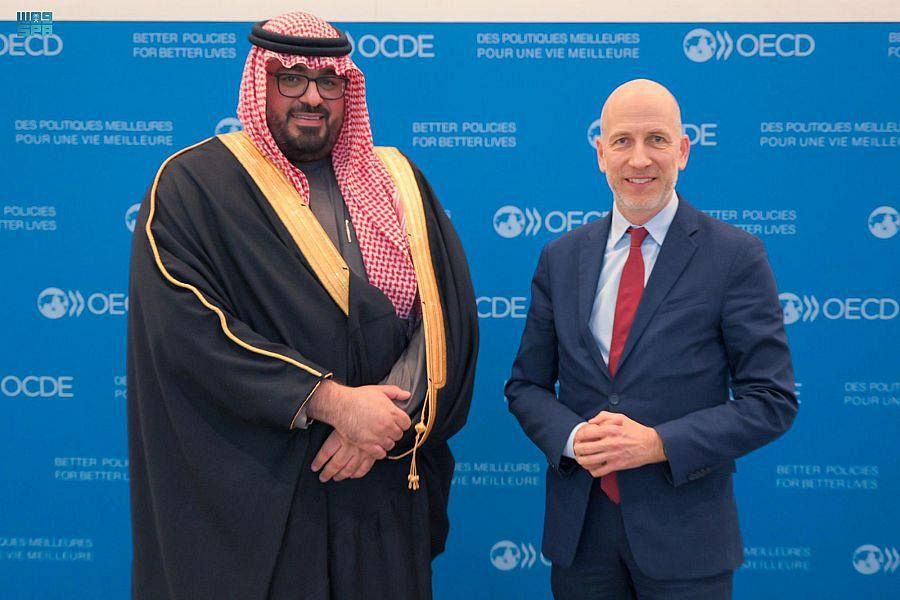
RIYADH: Saudi Minister of Economy and Planning Faisal bin Fadel Al-Ibrahim said the Saudi Census 2022 is moving ahead of schedule, with 35 percent of addresses already registered since the first phase commenced on Jan. 26.
Within 11 days, 14,000 field researchers completed 35 percent of the address update phase, Al-Ibrahim reported on his visit to the General Authority for Statistics on Sunday.
“The desired result is to reach 95 percent or more coverage in 30 days,” Al-Ibrahim told Arab News. “It’s a very challenging task, but we believe that, with everyone’s support, we will achieve this objective.
“Our last numbers were from 2010. It’s now 2022, and it must be updated,” the minister said. “Our society and everything it wants to achieve depends on it. The goal is to send the proper message for everyone to cooperate with the field researchers.
“We currently have 14,000 field researchers; by May, we will have 40,000. The project entered its first phase of collecting data, called ‘address canvassing,’ on Jan. 26. This is considered an essential step toward an accurate and effective census.”
Field staff began cataloging all inhabited and uninhabited housing units within the Kingdom and placing smart census stickers, each of which is equipped with a unique QR code that will link the housing unit with its respective head of household.
“The Saudi Census 2022 is a fully digital census, and the modern digital infrastructure in the Kingdom will help achieve this,” the minister said. “An option will be made available for self-enumeration through which it will be possible to complete a census form electronically through the authority’s portal without the need for the field researcher to visit the household.”
The Saudi census, which GASTAT conducts every 10 years, is a vital pillar for the planning and policymaking required to achieve Vision 2030 goals, according to Al-Ibrahim.
Al-Ibrahim told Arab News that over 25 government agencies are participating in the census operations, including the ministries of interior, health and education and the Saudi Authority for Data and Artificial Intelligence.
With their aid and the use of other modern technology, such as satellite imagery, the minister said the data collected on the population will be accurate, detailed and comprehensive.
“We are counting on our people to do this in the most accurate and thorough way possible, as we are relying on them for the success of this census, and we thank them for doing so. It’s a great opportunity for everyone to be a contributing cog that helps realize Vision 2030,” Al-Ibrahim said.
He added that applications like Absher and Tawakkalna are aiding significantly in collecting the data needed for the census while remaining committed to respecting individual privacy.
“Preserving privacy, security and safety are the most important principles we have in the census,” Al-Ibrahim said, explaining that GASTAT applies the highest levels of privacy and confidentiality related to individuals’ identities and prevents the disclosure of individual data in any way.
It also undertook not to share the collected information with any third party.
The minister said all pandemic restrictions and protocols are strictly followed and monitored across the board while census data collection is being carried out.
Most countries conduct a comprehensive census every 10 years to obtain accurate and detailed data about the population, including where people live and their social and economic characteristics. Accurate statistical data of this kind enables officials, planners and policymakers to allocate budgets and develop comprehensive strategies that will keep pace with urban development. It will also meet future needs based on expected population growth, contribute to development plans and provide public services such as education, health and transportation.
According to GASTAT, the last general population and housing census in the Kingdom took place in 2010, and the total population at the time was 27,136,977.
Last September, GASTAT carried out a pilot census covering seven Saudi cities in Tabuk, AlUla, Makkah, Asir, Diriyah, Riyadh and the Eastern Province. The census was meant to test the form along with the working tools to be used in the general population and housing census.








